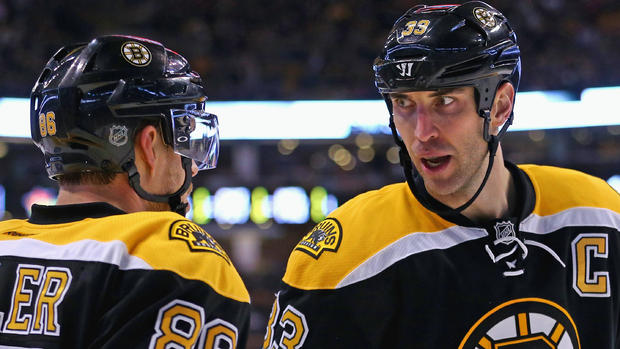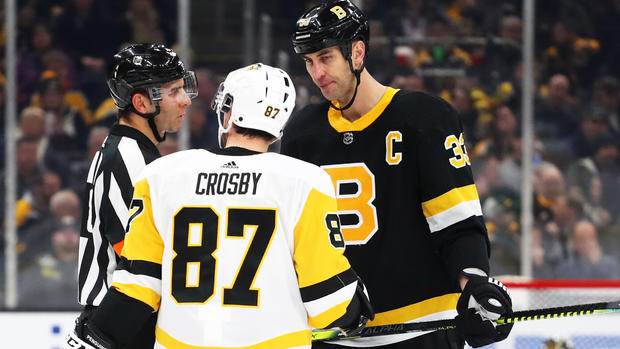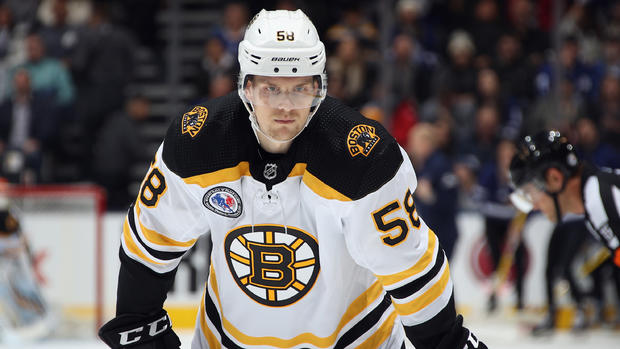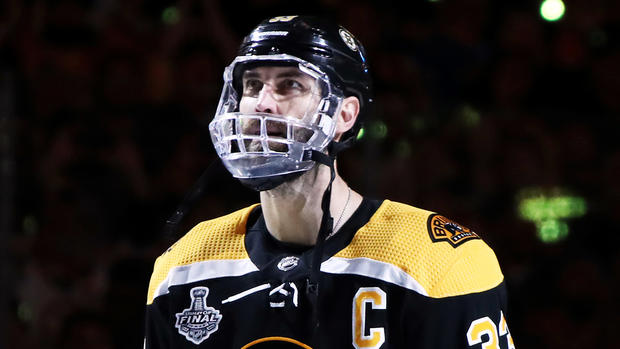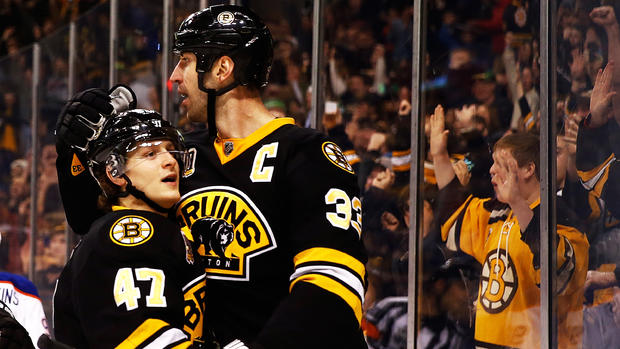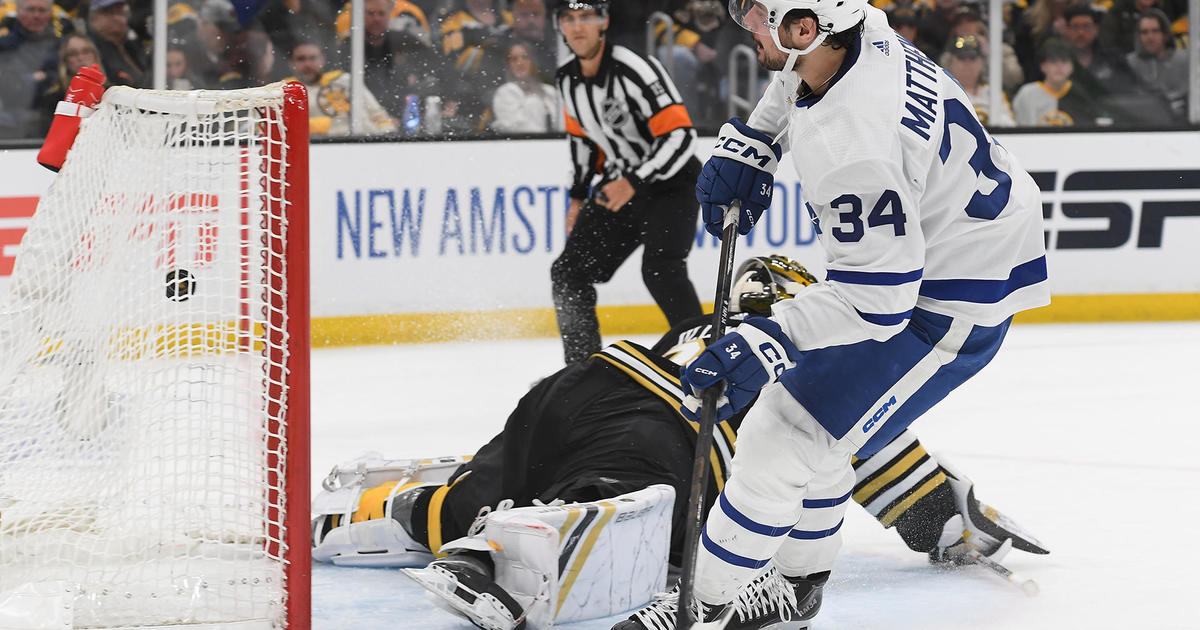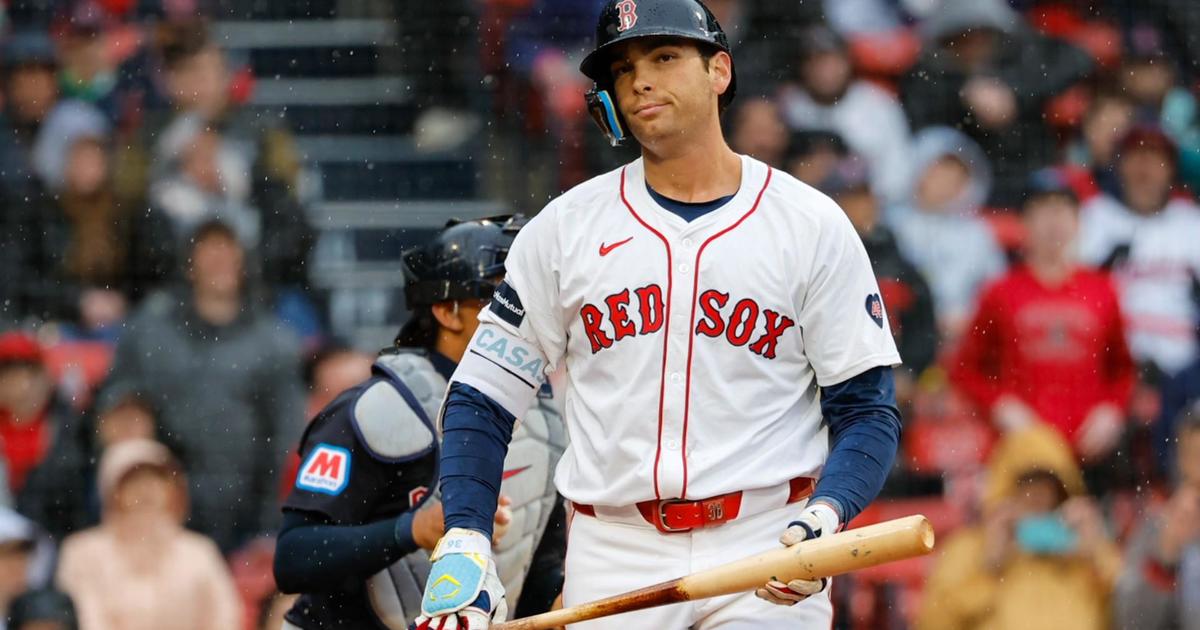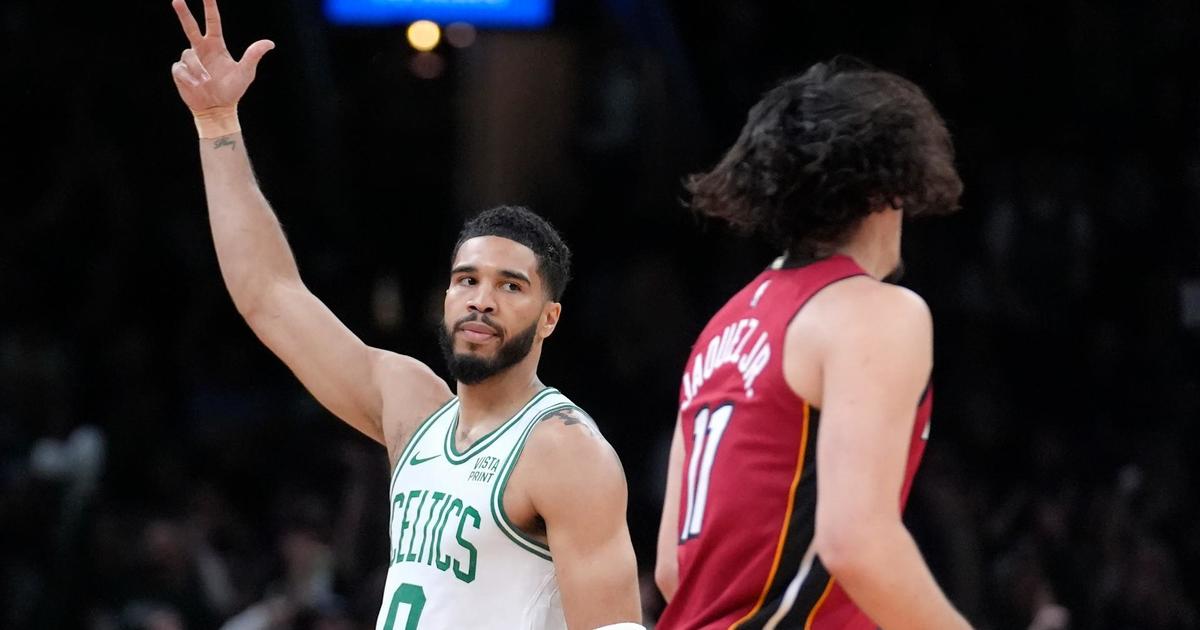Hurley: It's Hard To Make Sense Of Bruins Dumping Zdeno Chara
By Michael Hurley, CBS Boston
BOSTON (CBS) -- For every athlete in every sport, it all ends eventually. Everybody knows this.
Everybody also knows that a few months shy of his 44th birthday, Zdeno Chara is much, much closer to that end than he's ever been. There are surely no grandiose visions of a Norris-caliber season forthcoming from the NHL veteran of 22 seasons over 23 years.
Yet even accepting all of that, it's truly difficult to make sense of the Bruins opting to dump their captain after 14 years of admirable leadership and play -- especially when the captain was willing to basically play for free.
Yes, for the first since 2006, Zdeno Chara is not on the Bruins. He's on the Capitals after signing a $795,000 contract, with salary that can rise as high as $1.525 million with bonuses. Of that bonus money, $480,000 of it would be considered likely to be earned, as Chara can earn $250,000 by playing 10 games and another $230,000 if the Capitals make the playoffs.
So call it a $1.275 million contract. For a veteran with Chara's experience, that amounts to playing for free.
But the Bruins clearly didn't want Chara anymore, if a $1.275 million contract was too rich for their blood.
Under different circumstances, this could be easy to understand. If, say, the Bruins had a wealth of young, left-shot defensemen who are ready to take on significant roles at the NHL level, one could see why the front office decided it was time for the young players to have their day. Or if the Bruins had already used Chara sparingly last year, or if the Bruins had a down year thanks in large part to a rapidly declining Chara, then a change would be painful but necessary.
But none of that is really true. And the Bruins' decision to move on without Chara in their plans in any way remains a bit baffling for several reasons.
Kevan Miller Was Prioritized
Kevan Miller has played in 39 games since the start of the 2018-19 season. He missed the entire 2019 playoff run. He's played in zero games since the start of last season. And when he has been healthy in his career, he's been a third-pairing defenseman who brings an element of toughness to the lineup but not a tremendous amount more than that.
Yet on the very first day of free agency in October, general manager Don Sweeney made his first move of the offseason by ... signing Kevan Miller. That deal was for $1.25 million, and he could make up to $2 million in bonuses.
In a vacuum, a $1.25 million cap hit for Kevan Miller is hardly noteworthy. But when the 14-year captain has to leave town and take a deal worth less, it certainly stands out as a rather strange priority for the Bruins to have made back in the beginning of October.
Chara Played A LOT For A Presidents' Trophy-Winning Team
In life before the bubble, the Bruins were the NHL's best team. The Bruins were the only team to record 100 points in the standings prior to the shutdown, six more than St. Louis, and eight more than Colorado and the eventual Cup winners in Tampa Bay.
The 2019-20 Bruins were very, very good.
And Zdeno Chara played a lot.
Despite the significant treadwear, Chara ranked second on the team in average time on ice, skating over 21 minutes in his 68 games played.
Only one player -- Charlie McAvoy, who was Chara's D pair -- skated more minutes per night.
And only four skaters -- David Pastrnak, Brad Marchand, Charlie Cole and Sean Kuraly -- played in more games.
The Chara-McAvoy pairing was deployed consistently against opposing team's top lines.
Chara had a 64.3 percent defensive zone start rate, indicating that Bruce Cassidy trusted Chara more than anyone else to defend the end of the ice for the team that allowed the fewest goals in the entire NHL.
For comparison, McAvoy's defensive zone start rate was 50.4 percent, and he ranked second on the team among D-men.
Chara also led the team with 216 minutes played on the penalty kill, which was the third-best unit at killing penalties in the NHL. Only Brandon Carlo (3:07 shorthanded time on ice per game) was close to Chara's 3:11 per game; McAvoy averaged 1:49, and Matt Grzelcyk averaged 1:01.
Once again, when Cassidy really needed a lockdown D-man, he had just one place to look.
The point of all of this is to say that Zdeno Chara was a critical piece of the Bruins' defensive game last season, when they allowed the fewest goals in the NHL. And he did it for a $2 million base salary and $3.5 million overall.
Strictly in terms of on-ice performance, he was a tremendous value in 2019-2020.
Play The Young Guys? Which Ones?
There's an idea going around that Chara was blocking a path to the NHL for younger players who are ready to make the leap. It'll be interesting to hear which players Sweeney identifies in this group, because it's not immediately clear on its own.
John Moore, who inexplicably made $2.25 million to play in just 24 games last season, figures to get a boost in playing time. He's a 30-year-old for whom Sweeney overpaid in the summer of 2018. The Bruins have not had a tremendous need for him in the past two years, and that doesn't change now.
Among actual young players to get a chance, the Bruins have Jeremy Lauzon (23 years old), Urho Vaakanainen (22 years old), and Jakub Zboril (23 years old). They may be ready to make jumps -- and in the case of Zboril (two career NHL games played) and Vaakanainen (seven games), they would be massive jumps -- but generally championship-caliber teams take care to ease young D-men into the picture, rather than leaning heavily on them right out of the gate.
The Timing Stinks
When the Bruins were eliminated from the playoffs on Aug. 31, broadcast legend Doc Emrick immediately began the conversation about Chara's time in Boston possibly being over. Chara was asked about it after the game and said that he hadn't made any decisions just yet.
Yet given the work that Chara puts in every offseason, it's fair to assume that the extreme worker made his decision to play some time before Dec. 30. Nevertheless, it seems as though the Bruins didn't key Chara in to their plans until very, very late in the game.
Add in all of the charity work and the community work that Chara does in and around Boston, and the father of three might have preferred to have his life sorted out during a pandemic sooner than the day before New Year's Eve.
If the Bruins wanted to move on from Chara, then that is obviously their prerogative. If they didn't let him know until late December, they simply owed more to the man who led their team for a decade and a half.
Yes, professional sports is a business. But it's still possible to do the right thing for somebody who deserves it.
Culture Shock
Zdeno Chara has been a captain since 2006. He played a significant role in helping to elevate the Bruins from the NHL's basement to the class of the league. He may not have been the stereotypical vocal leader in the locker room, but he was a fierce and intense leader who set a certain tone and maintained a standard that remained a common thread from the Bruins' steady rise from 2007-10 all the way through his final season in Boston.
Losing a leader like Chara may not be quantifiable, but it's certainly no small thing.
The Bruins also lost a captain-in-the-making in Torey Krug this offseason. Krug earned the captaincy at Michigan State as a sophomore, and he was a two-year captain in East Lansing before joining the Bruins. On a team overflowing with quality leadership, Krug didn't wear a letter in Boston. But he carried himself as a well-liked teammate and consummate pro.
Now that the Bruins have moved on from both players without really trying to sign them, it's fair to expect some type of dip in locker room morale. While such a matter may get pooh-poohed from an analytics standpoint, the fact is that in a sport as emotional as hockey, leadership matters. And in a year where arenas are expected to be empty, teams are going to rely on their energy and spirit now more than ever.
Having a guy who was willing to play in a Stanley Cup Final game with his jaw wired shut, when he couldn't open his mouth to speak or eat? A guy who could skate a three-minute shift and finish it off with a fist fight ... in his 40s? That's something that could prove useful to have in the upcoming, unprecedented season.
Patrice Bergeron surely can be a great captain, as he's been leading as the alternate captain in his own quiet way for as long as anyone can remember. (Seriously, was Bergeron born with the A sewn on his sweater? It actually first appeared way back in 2006, Chara's first year as captain. How fitting.)
Yet even if the plan to play less experienced D-men pays off in spades, there's no way to downplay the loss of both Chara and Krug in a single offseason will have on the team -- on and off the ice.
Again, there comes a time for every player's tenure with a team to end. Sometimes it makes more sense than others. In this case, despite the player being leaned on significantly last season and despite the enormous impact the player has had on the team and the Boston community, Sweeney has decided that Chara's time has come.
If the GM isn't right, and things go sideways for a team that dominated the NHL last season before the shutdown? Well, Sweeney will just have to hope that doesn't happen. The effect of multiple poor signings and a decision as monumental as this one will certainly catch up to him if that is indeed the case.
You can email Michael Hurley or find him on Twitter @michaelFhurley.
